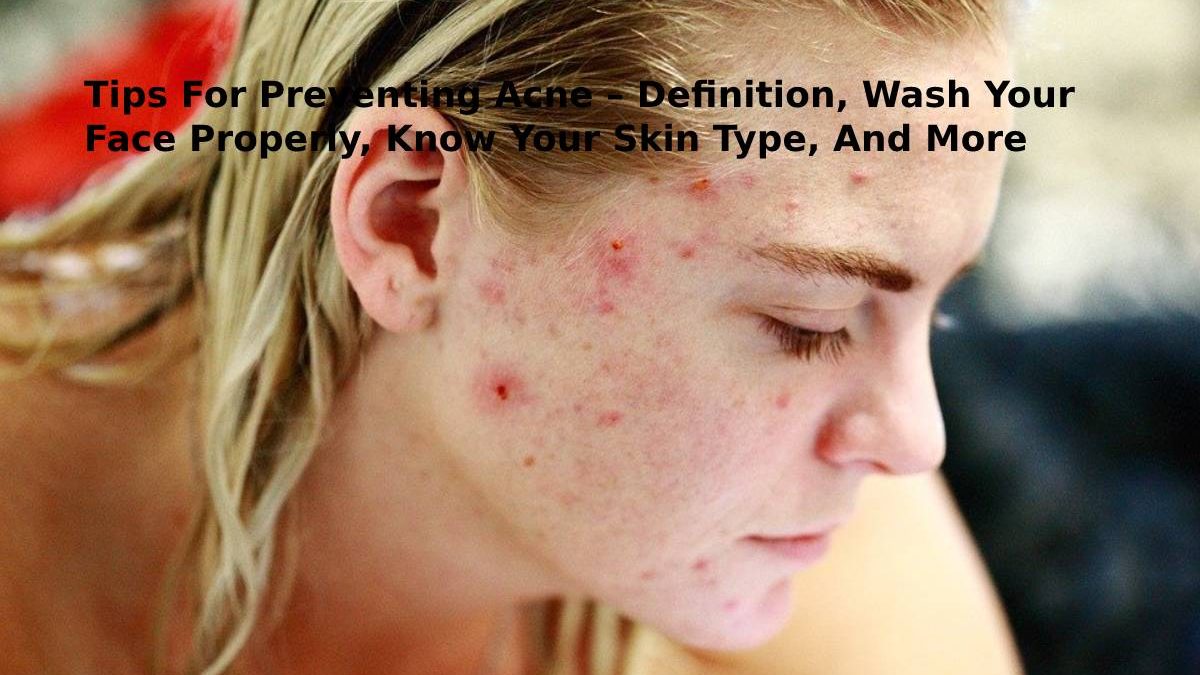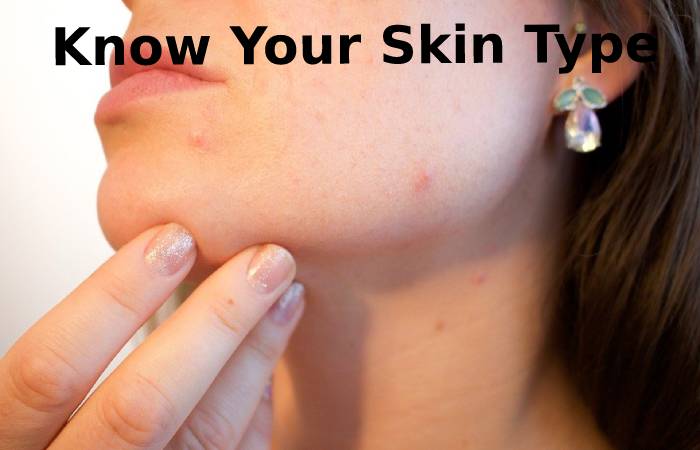Table of Contents
Definition
Tips For Preventing Acne – Acne is a widespread skin disorder that can cause various types of blemishes, such as pimples, whiteheads, and blackheads. And they can appear on the face, back, and shoulders, among other areas of the skin. However, there are numerous ways to prevent and clear acne naturally.
Wash Your Face Properly
To help prevent pimples, it’s important to brush off excess oil, dirt, and sweat daily. However, washing your face too much can make acne worse. When we strip our skin of its natural sebum with excess washing, the skin produces even more sebum to rebalance skin. So, excessive washing of the face can worsen acne, as can using cleansers or astringents that over-dry the skin.
Know Your Skin Type
Knowing your skin type is usually helpful in knowing which products to use and which to avoid. You can use the following parameters to classify the type of skin you might have (but you can also consult a dermatologist for help if you’re still unsure):
- Dry: Your skin is often scaly and tight.
- Oily: Your skin tends to be shiny at the end of the day.
- Mixed: You have both dry and oily areas (your oily area is usually the T-zone – your forehead, nose, and chin).
- Sensitive: Your skin is easily irritated and prone to redness.
Use Moisturizer
The moisturizing creams help the skin stay hydrated. Even if you have acne, moisturizer is significant because if your skin gets too dry, it will produce oil (sebum) to counterbalance it – and excess sebum causes pimples.
Stay Hydrated
If you are dehydrated, your body can signal the oil glands in your skin to produce more oil. Unfortunately, dehydration also types your skin look dull and promotes inflammation and redness.
Drink at least eight 250ml glasses of water daily to keep your body well hydrated. Drink more after exercise, if you are pregnant or breastfeeding, or if you spend time in a hot, humid environment.
Limit Makeup
It’s tempting to wear makeup to hide pimples. However, it can clog pores and trigger outbreaks. In addition, it can be difficult to remove makeup from your daily routine. If you still choose to apply products, you should choose a foundation or concealer that is non-comedogenic and fragrance-free so that your skin does not become even more irritated. Finally, gently wash off any makeup when you’re done wearing it, especially before you go to bed at night.
Causes that cause the appearance of acne
To eliminate pimples, blackheads, and whiteheads, it is first necessary to know the causes of acne. Acne looks when the skin’s pores become clogged with sebum, dead cells and, in many cases, bacteria. Certain features can increase the probability of acne, such as hormonal changes caused by puberty or pregnancy. Use of specific medicines, such as birth control pills or corticosteroids
- Stress
- Genetics
- Poor diet high in fat and carbohydrates
- Improper use of products
Why Do Skin Pores Get Clogged?
Each skin pore has a follicle made up of hair and a sebaceous gland that releases sebum (oil). The perseverance of sebum is to lubricate the skin and keep it soft, however, when there is excessive sebum production, the pore is clogged, and there is also an accumulation of dead cells, which alters the pH of the skin and can trigger acne .
Acne Personal Care
Acne is a skin disorder that reasons pimples or “pimples.” Whiteheads (closed comedones), blackheads (open comedones), and red, inflamed papules, nodules, or cysts may develop. These most commonly appear on the face, neck, upper body, and upper arms.
Acne occurs when the tiny pores on the skin’s surface become clogged. The pores can become blocked by substances on the surface of the skin. Most commonly, they develop from a mixture of natural skin oils and dead cells broken down from within the pore. But anyone can get acne.
A small amount of sun exposure can slightly improve acne. However, too ample experience with the sun or tanning beds increases the risk of skin cancer. In addition, some acne medications can make your skin added sensitive to the sun. Wear sunscreen and hats regularly if you are taking these medications.
Conclusion
Many acne treatments and prevention methods are similar. However, identifying the cause of each person’s acne is ideal for effective results. Remember that a specialist will provide a more accurate diagnosis and can recommend the best to treat your acne.
Related posts
Featured Posts
Ruby Gemstone: What Are The Most Valuable Gemstones?
Ruby Gemstone – It is a very beautiful and valuable stone.Whether due to their colours, size or brightness, throughout history,…
Summer Fashion Trends: About, Dress Trending, Trendy Colors, And More
About Summer Fashion Trends – Summer Season has many different types of Clothes which look So beautiful every Time Wear…




